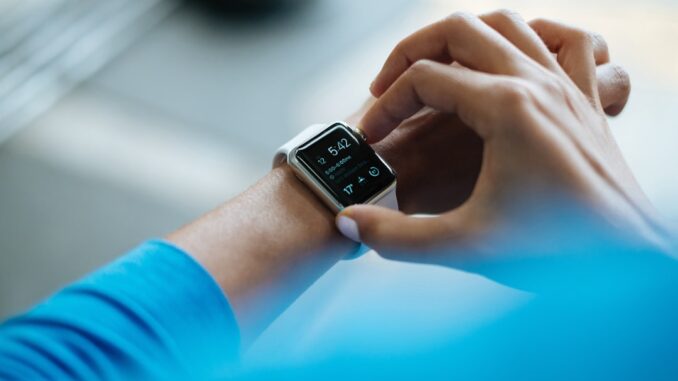
Samsung is reshaping personal health management by integrating its wearable devices with healthcare systems. The recent acquisition of Xealth, a U.S.-based digital health platform, marks a significant step in this direction. (reuters.com)
Bridging the Gap Between Wearables and Healthcare
The integration of Samsung’s wearables with Xealth’s platform enables seamless data sharing between users and healthcare providers. This collaboration allows for real-time monitoring of vital signs, facilitating timely interventions and personalized care plans. By connecting over 500 U.S. hospitals with patients, Xealth’s platform supports digital health programs that enhance clinical outcomes. (reuters.com)
Innovative Health Features in Samsung Wearables
TrueNAS by Esdebe: healthcare data storage that delivers value without sacrificing security.
Samsung’s wearables, such as the Galaxy Watch 8, offer advanced health monitoring features. The Antioxidant Index measures carotenoid levels in the skin, providing insights into oxidative stress and overall health. Additionally, the Sleep Coaching system analyzes sleep patterns and offers personalized recommendations to improve sleep quality. (androidcentral.com)
Ensuring Data Security and Privacy
Samsung prioritizes data security by employing the Samsung Knox security platform. This multilayered defense system protects sensitive health information on wearables and connected devices, ensuring compliance with healthcare regulations. (samsung.com)
Collaborations with Healthcare Institutions
Samsung collaborates with institutions like Brigham & Women’s Hospital and Tulane University School of Medicine to enhance health services. These partnerships aim to develop personalized health profiles and tackle cardiovascular diseases using biometric data from Samsung’s wearables. (pymnts.com)
By integrating wearable technology with healthcare systems, Samsung is paving the way for a more connected and proactive approach to personal health management.


How will the integration of wearable data with healthcare systems affect patient autonomy and the potential for algorithmic bias in treatment recommendations?
That’s a crucial point regarding patient autonomy and potential algorithmic bias! The integration of wearables definitely raises questions about how treatment recommendations are shaped. We need open discussions about data transparency and patient consent to ensure equitable and unbiased healthcare.
Editor: MedTechNews.Uk
Thank you to our Sponsor Esdebe
The collaboration between Samsung and healthcare institutions could lead to more proactive and preventative care models. How might these partnerships influence the development of new diagnostic tools and remote patient monitoring strategies?
Great point! These collaborations could indeed revolutionize diagnostic tools by incorporating real-time data from wearables. This could lead to more personalized and proactive remote patient monitoring, improving early detection and intervention strategies. Imagine AI-powered diagnostics based on continuous biometric feedback!
Editor: MedTechNews.Uk
Thank you to our Sponsor Esdebe
The development of personalized health profiles via wearable data is promising. It will be interesting to see how the data collected evolves from simple biometric tracking to actionable insights and preventative interventions for a wider range of conditions.
Thanks for highlighting the potential of wearable data! I agree that moving beyond basic tracking to preventative interventions is key. Imagine wearables detecting early indicators of conditions like diabetes or heart disease, prompting proactive lifestyle changes or earlier medical consultations. The future of personalized health is exciting!
Editor: MedTechNews.Uk
Thank you to our Sponsor Esdebe
Galaxy Watch 8 measuring carotenoid levels? So, we can finally quantify if we’re *actually* eating our greens? Maybe it’ll shame me into skipping that extra slice of pizza.
That’s exactly the idea! The carotenoid level tracking is meant to help us make more informed choices about our diet. Perhaps seeing the data will encourage healthier eating habits overall. Let’s see if tech can actually motivate us to reach for those veggies!
Editor: MedTechNews.Uk
Thank you to our Sponsor Esdebe
Galaxy Watch 8 telling me my sleep score is bad? I already knew that! Maybe it can finally tell me *why* I keep waking up at 3 AM craving pickles.
Haha, I feel that pickle craving on a spiritual level! I agree the ‘why’ is crucial. Sleep Coaching on the Galaxy Watch 8 aims to do exactly that – analyze your sleep patterns and give you personalized recommendations. Fingers crossed it helps you ditch those midnight cravings!
Editor: MedTechNews.Uk
Thank you to our Sponsor Esdebe
So, does this mean my Galaxy Watch 8 will soon nag me to book that overdue check-up? I’m both thrilled and slightly terrified by the prospect of my wrist becoming my doctor’s new best friend.
That’s the hope! The goal is to make preventative healthcare more accessible. Imagine your watch gently reminding you about check-ups and even offering insights based on your tracked data for discussion with your doctor. Perhaps we’ll all have more informed conversations about our health!
Editor: MedTechNews.Uk
Thank you to our Sponsor Esdebe
So, will my insurance company start offering discounts based on how many steps I take? Suddenly feeling *very* motivated to hit that daily 10,000!